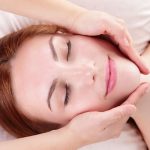Back in the 1950s, it was just assumed that as a person ages, they could expect to lose all their teeth and have no choice but to wear dentures if they could afford them. Today, things are different. There is no reason today why adults should not expect to keep their teeth for a lifetime if they’ve been diligent in brushing, flossing, eating healthy foods, and had access to dental care. However, things can happen, and due to hereditary conditions, health problems, an injury, or having been unable to visit a dentist for treatment of gum disease, some people do lose their teeth and need to get Dentures in Northeast Minneapolis.
Dentures in Northeast Minneapolis are an appliance that replace the missing teeth. They aren’t your great-grandparents’ dentures, either, that never seemed to fit right, wouldn’t stay in, might even have bene painful to wear.
When a patient first gets Dentures in Northeast Minneapolis, some slight discomfort is to be expected. Muscles in the tongue and cheeks may be sore as they get used to the feeling of keeping the dentures in place. The gums may be a bit sore for a while, too. If the patient has recently had their teeth removed, the jaw and gum tissues may still be healing, swollen, and sore.
After receiving their dentures, patients will continue to come in for regular visits so the dentist can re-check the fit of the dentures as the tissues in the mouth heal. The shape of the gums may change as healing takes place, and the dentures will need to be adjusted during this time.
Denture wearers should remove the dentures and brush their denture teeth much like you would brush natural teeth. They should also brush their gums, tongue, roof the the mouth, and the cheeks. Even without teeth to get cavities, bacteria in the mouth can still contribute to gum problems and bad breath.
Without teeth in the mouth, the cheeks and lips sink in, giving the person a much older appearance and really affecting their facial profile. Without teeth, a person can have a much more difficult time speaking. The person’s diet will be much more limited since they’ll be unable to chew so many foods. That, in turn, can affect their nutrition, and lead to health problems solely from poor nutrition.





